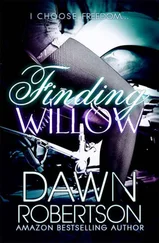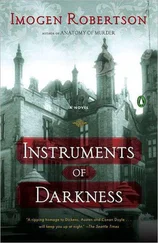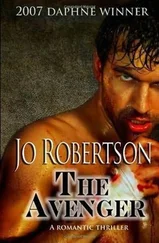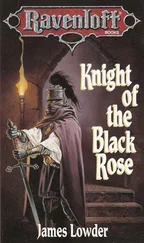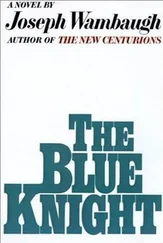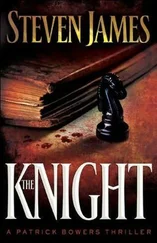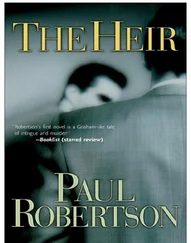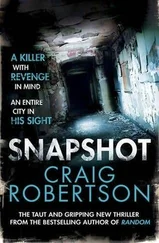‘He’s still a black man. He must stand out.’
‘There’s mair o them in Scotland than ye micht imagine. Maistly in Glasgow and roond aboot. Wi the trade tae the Indies, ye ken. It’s no like Bristol or Liverpool, sir, whaur I’m tellt they are very numerous, but there’s mair here than ye’d think.’
‘Is that so?’ Sir John was irritated by the suggestion that this man knew more about Negroes than he.
‘In the west, aye. There’s a line or twa I pit oot in that airt that I’ve no reeled in yet. No that I’m ower hopeful, but …’
Wedderburn tilted a furrowed brow at him: explain further what you mean .
Jamieson coughed again. ‘Ye’ll be aware o the present revolutionary spirit that’s rife amang certain trades, sir? Weavers and spinners and the like. There’s a secret society brewin up discontent, ye’ll maybe hae heard o it? The United Scotsmen, as they cry themsels.’
Wedderburn found himself getting annoyed. Jamieson seemed incapable of coming at a point directly. He always wheedled and sneaked his way up to it. ‘Why should they interest me? I am not a political man.’
‘Nor I, sir.’
‘But they interest you?’
‘It’s my work.’
‘You are a spy.’
Jamieson blinked, mole-like. ‘Weel …’
‘You are a spy. You turn men’s coats. You buy men and their secrets. Am I right?’
‘It’s why ye employed me,’ Jamieson said flatly.
‘Mr Duncan employed you. Never mind. Go on with your United Scotsmen.’
Jamieson paused, as if recollecting something he had memorised earlier. ‘In pursuin a certain line o inquiry intae the activities o this combination,’ he said, ‘on behalf o some gentlemen wi considerable interests in the linen manufactories in Dundee and Fife, I had occasion tae make contact wi some o the weavers o Paisley. There is a black man in that toun – no oor black man – a respectable and loyal subject – and as it appears there is a web o contacts no jist amang the weavers but amang the Negroes o the west, I thocht something micht come back by way o him. But there’s been naething thus far.’
‘This loyal Negro ,’ Wedderburn said, stretching out the phrase as if to test if it would snap, ‘what is his name?’
‘Peter Burnet. A weaver.’
‘You met him?’
‘No. I wrote tae him.’
‘And you expect a reply?’
‘I dinna ken.’
Sir John snorted. ‘Well, well, if that is all, that is all. Knight may be furth of Scotland altogether, as you say.’
‘I could appoint agents in London, sir. Time would be a factor, but if ye were willin …’
Something in Wedderburn’s eyes brought Jamieson to a halt. There was a deep thought turning in there, an assessment. Then Wedderburn shook his head, as if ridding himself of the thought. Later, Jamieson would curse himself for not paying more attention, for not seeing it as a warning signal. He had seen the same head-shaking gesture earlier, when Knight’s wife had been mentioned. As if there were something in Wedderburn’s mind that he couldn’t get out.
Wedderburn said, ‘No. It’s not important.’
If it was not important, Jamieson thought, why had he been traipsing around the countryside for two months? Not that he was going to complain, since the fee was substantial, but in his experience even wealthy gentlemen – especially them – did not hire him for trivialities.
He ventured an opinion. ‘Tae reach further afield, sir, we could try a discreet advertisement in ane o the newspapers. “Information regarding the whereaboots of the following individual … a small reward offered” – that kind o thing. If he disna read the papers, somebody that kens him micht.’
‘Oh, he reads the papers, Mr Jamieson, be assured of that. He is a very thorough reader.’
‘Weel, then …’ Again, Jamieson saw that struggle in Wedderburn’s eyes. Hot, then cold. Anger? Guilt? Something old but still raw. And behind Wedderburn, above the fire, he saw something else: flanked by several smaller silhouettes, a large painting in which three men posed on a kind of wooden porch. Their clothes were old-fashioned – from forty or fifty years back, perhaps – and the painting was no masterpiece, but they were unmistakably Wedderburns. All three had Sir John’s high brow and long jaw. The porch was attached to a house, and was partly in shadow. Bright green, foreign-looking shrubs and an absurdly blue sky provided a crude contrast to the shade and to the unsmiling faces of the men. The scene must be Jamaica. One of the men – probably the one in the middle, Jamieson thought – had to be Sir John.
‘No, I do not wish it,’ Wedderburn said. Jamieson dragged his attention back to the old laird. ‘I believe you are right when you say he is no longer here. And in any case, the nature of these Negroes … Put such a notice in the press, there would be dozens of them thigging and sorning at my gates. No, we’ll not pursue that line.’
‘I only thocht, if it’s a maitter o compensation …’
Sir John drew himself up, squaring his shoulders against their stoop. ‘Compensation? What do you mean by that, sir?’
Jamieson thought of a dog with its birse up, but the image did not quite fit. It was more as if the raw thing in Wedderburn had suddenly manifested itself on his skin, like a disease. Jamieson took a couple of steps back towards the door. ‘Jist that … weel … for Joseph Knight. The case is auld enough noo … Time saftens sair herts. I presumed …’
‘Well, don’t !’ The word shot from Wedderburn’s mouth like a dog after a cat. Jamieson retreated further. ‘Your presumption is not what I hired you for – nor your couthy proverbs. Your task was to find Joseph Knight, nothing more. And you have failed. You presumed that I seek him out to pay him some money? To make amends of some kind? I pay him compensation? Oh, you have read me very wrong, sir!’
‘I see that, I see that,’ Jamieson said, though what he was most clearly seeing was his fee floating down the Tay. ‘No whit I meant at all, Sir John. I beg your pardon – oomph!’
A further detonation from Wedderburn was forestalled by this minor one from Jamieson, triggered by the opening of the library door, the handle of which had dunted him sharply in the small of the back. A tall, dark-haired girl in a white muslin dress entered.
‘Oh, I am sorry.’ It was not clear if she was addressing Jamieson, now rubbing his kidneys and screwing up his face, or her father.
‘What is it, Susan?’ Sir John said. ‘It is not yet noon.’
‘I forgot, Papa. I came for a book.’ She had her father’s serious, thin face, and an adolescent awkwardness of posture.
‘You will have to come back for it, then.’ Wedderburn turned to Jamieson. He made a sudden stab at joviality. ‘My daughter, sir, reads books as a sheep eats grass, incessantly, and as you have discovered she lets nobody stand in her way. I make it a rule that this room is mine, and mine alone, every morning, or I’d have no peace. But I don’t have it anyway. My dear, you must find something else to occupy you for an hour and a half. Should you not be at your task?’
‘I’ve finished my task, and now I’ve to read a book while Maister MacRoy helps Anne with hers. Could I not …?’
Sir John held up a finger. ‘We are discussing business matters. Your book will have to wait. Do some sums. Now – away with you!’ He half shouted this, half laughed it. Jamieson could see the intention: Wedderburn assumed that the lassie had overheard him roaring at Jamieson, and wanted her to think that that had been all light-hearted too. Sounding ever more conciliatory for her benefit, he moved over to the writing-table, saying, ‘I thank you for your efforts, Mr Jamieson. I imagine it’s tedious work. Off you go, miss.’
Читать дальше

